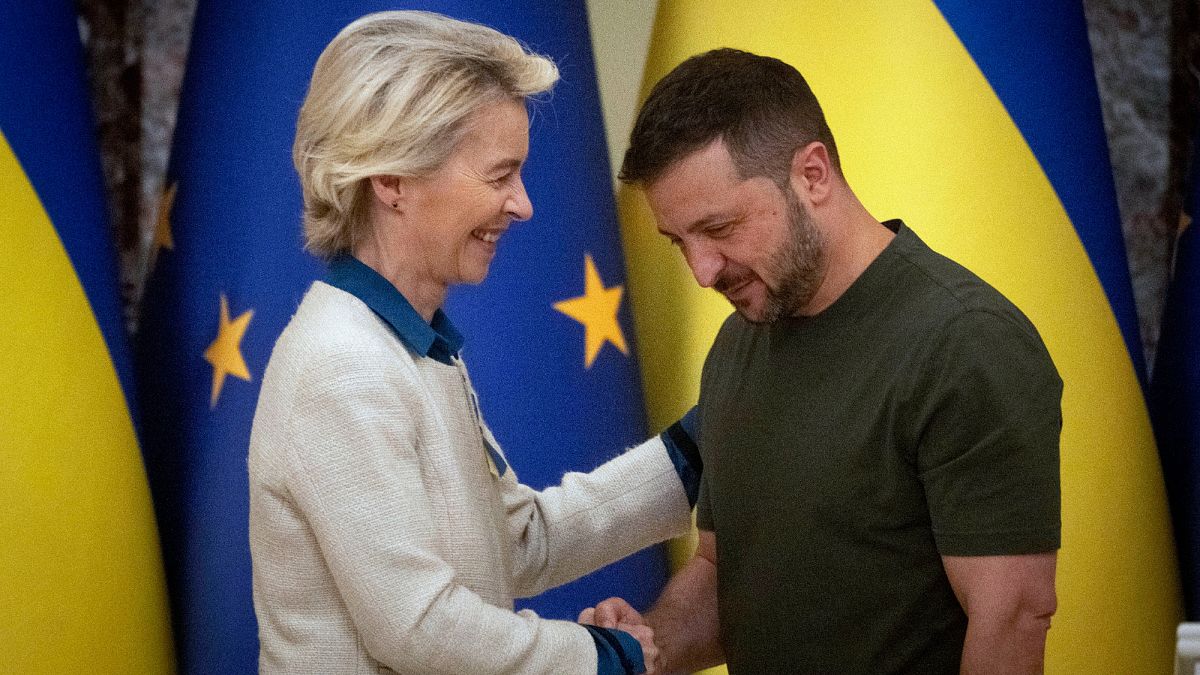

In a series of significant international developments, the European Union and Ukraine have reached a new trade agreement designed to replace the temporary post-war framework with a more sustainable and realistic long-term arrangement. The European Commission made the announcement after careful negotiations, resulting in a deal that aims to stabilize trade relations while providing Ukraine with greater access to the EU market. This agreement aligns with EU agricultural standards, promising not only improved economic ties but also political calm at the borders. The foundations for this long-term cooperation highlight the resilience and adaptability of both parties amid challenging global economic conditions.
Meanwhile, in an effort to address rising geopolitical tensions in the Asia-Pacific region, Lithuania and the Philippines have signed a security pact aimed at countering the influence of what has been termed the ‘authoritarian axis’ of China and Russia. This agreement emerges against the backdrop of increased confrontations in the South China Sea, where multiple regional actors, including Vietnam, Malaysia, Taiwan, and Brunei, have been engaged in prolonged territorial standoffs. The partnership between Lithuania and the Philippines underscores a broader international strategy of collaboration and mutual support in ensuring regional stability and security.
Turning to developments in the Middle East, Israeli Prime Minister Benjamin Netanyahu has expressed optimism regarding potential broad regional possibilities as diplomatic efforts intensify. This optimism coincides with calls from U.S. President Donald Trump for a ceasefire in Gaza, emphasizing the urgency of securing the return of hostages. The encouragement for peaceful resolutions and strategic negotiations reflects the ongoing pursuit of stability in a region often marked by conflict. Efforts in this direction emphasize the importance of dialogue and the readiness to explore avenues for comprehensive peace that benefits all parties involved.
Further north, France, Germany, and the UK have collectively urged Iran to maintain its cooperation with the International Atomic Energy Agency (IAEA) amid rising tensions over nuclear concerns. The joint appeal from these European nations is accompanied by a condemnation of threats directed at the head of the U.N. nuclear watchdog, following provocative statements from an Iranian newspaper. The plea highlights the necessity for continuing diplomatic engagement and maintaining lines of communication to ensure transparency and trust in nuclear disarmament efforts. The international community’s commitment to dialogue and cooperation reflects a shared understanding of global security’s interdependency and the benefits of collaborative problem-solving.
In light of these developments, the international community is witnessing a series of strategic partnerships and diplomatic moves aiming to address contemporary challenges and foster an environment of cooperation and peace. Each step taken in the direction of negotiation and mutual understanding contributes positively to the intricate global landscape. Whether through comprehensive trade agreements, security alliances, or diplomatic dialogues, these efforts underline the importance of adaptability and collaboration in the face of evolving international dynamics.
As these stories unfold, they serve as a reminder of the interconnected nature of global affairs and the shared responsibility of nations to navigate challenges together. The power of diplomacy, trade, and security cooperation holds the promise of sustained peace and prosperity, offering a beacon of hope and stability in an increasingly complex world stage.
Source: {link}
